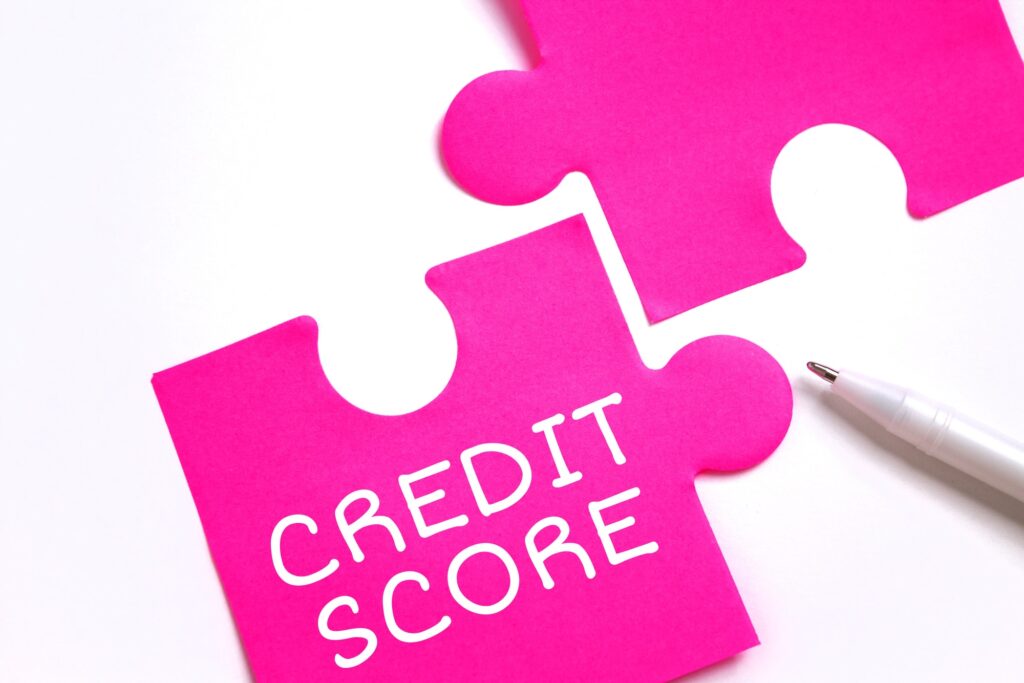Your credit score is a key indicator of your financial state that affects your ability to get credit cards, loans, and mortgages. In addition to making approval procedures easier, a higher credit score also gets better interest rates. About 200 million credit cards are owned by Americans, and these widely available financial instruments are more than just convenient—they have the power to influence and improve your credit history.
What is Credit Scores?

A credit score is a number that expresses how creditworthy you are; it usually has three digits. FICO scores, which run from 300 to 850, indicate how likely it is that you will be approved for a loan and if you will be eligible for favorable interest rates. You are likely to be offered more advantageous terms the higher your credit score is.
Your credit score is the result of an evaluation of your credit history that includes information about how many accounts you have, how much debt you have overall, how well you have paid back your debt, and other pertinent aspects. These credit scores are used by lenders to determine how likely you are to make loan repayments on time.
Also Read: 5 Best Cashback Credit Cards for Travel You Need to Get Your Hands On!
Tips for Improving Credit Scores with Credit Cards
Maintaining and strengthening your financial stability requires an understanding of how credit cards might affect your credit score. We’ll go over five credit score enhancement tips by using credit cards in this segment, including how to handle issues with payment history, credit utilization, credit history length, and credit mix.
1. Building a Better Credit History
Your credit score is primarily determined by your payment history, which accounts for 35% of your FICO Score. The main credit bureaus receive reports on all account activity, including payments, from each new credit card you open. It’s critical to always pay your credit card bills on time if you want to establish and preserve a good credit history.
So, adding new credit card accounts and regularly making on-time payments might help you gradually raise your credit score if you’re just starting or have a thin credit file. On-time payments show that you are responsible with money and have a good credit history, which makes you a more appealing borrower to lenders.
2. Improving Credit Utilization
A significant component influencing your credit score (30% of your FICO Score) is credit card utilization or the connection between your credit card limits and balances. Keeping your credit card use ratio low is a wise financial move that will raise your credit score.
Your credit utilization rate may be impacted by adding a new credit card to your wallet. Your credit score will probably increase if the credit report shows that you only use a tiny portion of your credit card limitations. To properly evaluate and manage your credit consumption, think about utilizing a credit utilization calculator.
Furthermore, it’s also possible to reduce your total credit use rate by opening a new credit card with a zero balance. This tactic is especially helpful if you have several credit cards with different amounts. Maintaining balance-free balances on one or more cards demonstrates appropriate credit management, which raises your credit score.
3. Navigating the Length of Credit History
The duration of your credit history, which accounts for 15% of your FICO Score, may initially be slightly impacted by the opening of a new credit card. Newer accounts could temporarily hurt your position in this category because older accounts are typically preferred.
Your credit card accounts mature and eventually become assets that help raise your credit score. Although the average age of your accounts may initially be lower with a new credit card, as the accounts mature, responsible use and on-time payments will improve your credit history.
Think about asking a friend or relative to add you to their previous credit card account as an authorized user. As long as the account has a spotless history with no late payments and minimal credit utilization, you can take advantage of their established credit history using this method. For best results, make sure the card issuer notifies the three credit bureaus about authorized user accounts.
4. Balancing Your Credit Mix
Diverse account types are valued by credit scoring models. Ten percent of your FICO Score is made up of the “Credit Mix” category. If you haven’t had any revolving credit cards on your credit report, getting a new credit card will help your score when it does show up.
Although it is advantageous to diversify your credit mix, you must do it carefully. Avoid opening many credit accounts at once as this may give rise to doubts about your capacity to manage your finances. Rather, focus on appropriate management and gradually add new credit to optimize the beneficial benefits on your credit score.
5. Monitoring Your Credit Health
After you’ve put strategies in place to raise your credit score with credit cards, regular credit monitoring is an essential activity to safeguard and improve your credit health.
Your first line of protection against mistakes, inaccuracies, or even fraudulent activity in your credit report is routine monitoring. If you catch these problems early on, they won’t have a bad effect on your credit score. You may improve your credit management techniques and make wise financial decisions by keeping an eye on how your credit score reacts to changes.
Credit monitoring acts as a preventative measure against identity theft, allowing for prompt action to limit harm. Sign up for trustworthy credit monitoring services that provide alerts for noteworthy changes and real-time information. Free monitoring is a perk that many credit card companies offer to their customers.
By setting automatic notifications, you can make sure that important events, such as the opening of new accounts or late payments, are promptly sent to you. Maintaining a positive credit trajectory can be achieved through consistent monitoring, which is a long-term commitment to proactive financial management. By incorporating this habit into your daily life, you safeguard all of your hard work and make sure that credit is always a helpful tool for your financial journey. When negotiating the intricacies of the credit world, remain alert and self-assured.
Importance of Credit Card Scores
Your credit score is more than just a number; it’s a door to savings and other financial opportunities. A desirable 850 in the FICO model is a good credit score that tells lenders you are a trustworthy borrower. This then translates into concrete advantages that have the potential to significantly affect your financial situation.
The easiest way to get approved for credit cards, loans, and mortgages is to have an excellent credit score. Good or exceptional credit scores can result in significant savings throughout a person’s lifetime—possibly hundreds of thousands of dollars. Banks compete for the business of lower-risk customers, which leads to better conditions for loans, lower costs, and alluring benefits.
Furthermore, a good credit score improves your lifestyle in areas other than finances. Good credit makes a tenant more desirable to landlords, and employment choices may take credit history into account. The advantages even reach the domain of interest rates, where those with excellent credit are eligible for lower interest rates in addition to greater approval rates.
Improving credit score is a wise financial decision since it can result in large savings over time. Positive credit history has real benefits that are further highlighted by attractive loan terms like inexpensive fixed-rate mortgages and bigger credit limits. In the end, your credit score is more than just a figure; it’s your financial pass to a safer and more affordable future.
Understanding the FICO Score System
The FICO® Score is the most important model among the maze-like credit scoring models. Based on a range of 300 to 850, FICO® Scores are trusted by an astounding 90% of top lenders. These ratings, which are divided into different credit scoring tiers, serve as your identity card in the financial world.
- Excellent: Reaching heights of 800 and above, this peak exhibits a mastery of finance.
- Very Good: A strong position between 740 and 799, demonstrating excellent credit performance.
- Good: Marking a stable financial position, comfortably resting between 670 and 739.
- Fair: Stumbling along the line between 580 and 669, indicating caution but still having space to grow.
- Poor: The chasm below 579, demanding a quick climb up to more secure financial territory.
A credit score of 700 or higher is considered good by highly selective lenders. Reaching this desired benchmark opens doors to better lending conditions, cheaper interest rates, and an abundance of financial options. Thus, strive to raise your FICO® Score to the highest levels of credit excellence, as this will unlock doors to a world of financial abundance.
Time Required for Credit Score Improvement
Are you wondering how long it will take to raise your credit score? Unfortunately, there’s no set protocol. Your credit journey is entirely your own; there are no magic point gains for every action or monthly score increase.
However, if you have a difficult payment history with collections as part of your credit issues, patience is a virtue. It’s a slow journey toward progress, contingent upon regular, timely contributions.
There is no crystal ball when it comes to credit scores. The pace of your trip is determined by your financial narrative. In the world of credit, time is both an ally and a storyteller, helping to shape the backdrop of your financial tale, so embrace the adventure.
Final Thoughts
To sum up, having a high credit score opens doors to savings and other financial opportunities. Strategic use is emphasized in the offered advice on using credit cards to raise credit scores. This includes controlling credit utilization, developing a strong credit history, and monitoring your credit health.
By presenting themselves as lower-risk borrowers, these actions help people get better loan terms and financial benefits. Higher scores translate into better financing terms and financial possibilities. The FICO Score system functions as a universal language.
Although improving one’s credit score does not have a set timeframe, patience is essential, particularly for individuals with difficult credit histories. Long-term financial success and a better financial future depend on embracing the journey, using credit cards responsibly, and practicing consistent credit management.

